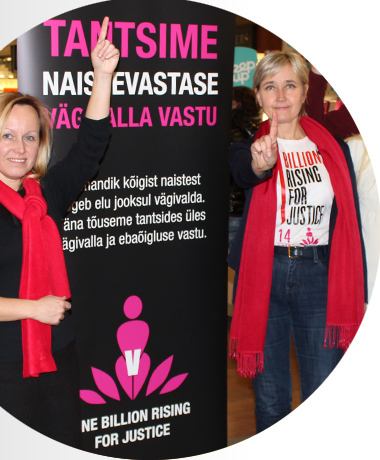Cuba Denied Having An Authoritarian Political System At The UN
Saturday, 19.10.2024, 11:18 / SEISUKOHAD / RSS
During the CEDAW review of Cuba, Estonian expert Marianne Mikko referred to Cuba’s political system as “authoritarian” and to gaps in gender equality in leadership positions.
GENEVA (apro).- Cuba categorically denied having an authoritarian political system, in the context of the country’s examination by the Committee on the Elimination of Discrimination against Women (CEDAW).
During the CEDAW review of Cuba, Estonian expert Marianne Mikko referred to Cuba’s political system as “authoritarian” and to gaps in gender equality in leadership positions.
“I have to react to the mention that the Cuban political system is authoritarian. I find it totally inadequate and incorrect. If you read the Constitution, the first article says that it is a democratic state,” said Alejandro González Behmaras, director of International Organizations at the Ministry of Foreign Affairs, visibly upset.
“The fact is that there is no single political model,” she added, “nor is there a model that is more legitimate than another. I invite the expert to “read” paragraph 8 of the Vienna Declaration, which states that democracy is based on the freely expressed will of the people to determine their own political, economic, social and cultural regime in full participation in all aspects of life.”
“There is no international obligation to have a multi-party system, which has not proven to be more legitimate or more genuine than other systems,” González argued.
“The Cuban people have created their own system in a popular referendum exercise in which more than 86.85% of the population participated with an affirmative vote,” he emphasized.
“I would say that it is a great exercise in popular participatory democracy,” the Cuban official stressed.
Civil society
Regarding the lack of funding or restrictions on independent Civil Society Organizations, for which the Havana government was also questioned, González stressed: “I must say that in Cuba there is a diverse associative space governed by a clear regulatory framework that allows the activities of NGOs with complete normality.”
“What cannot be done in Cuba,” he clarified, “is to receive funding to subvert the constitutional order legitimately established by the Cuban people, just as it cannot be done in any other country.”
“The 1998 Declaration of Defenders clearly states that the activities of such organizations must be carried out within the established legal framework (…) subverting the constitutional order legitimately established in a country by its own people in the sovereign exercise of their powers directly violates the principles of the Charter,” he explained.
“Therefore, in order for this to continue being a constructive dialogue as it has been until now, I would invite you to avoid making value judgments about the Cuban political system that are not part of the Committee’s (CEDAW) jurisdiction,” he said.
During the review, CEDAW experts questioned the Havana government about the fact that Cuban women bear the brunt of the burden in the search for water and food; access to justice; the promotion and respect of their human rights; and the reduction of civil space for women, especially the “repression of Afro-descendant women.”
Likewise, the experts from the Committee that oversees compliance with the UN Convention on the Elimination of Discrimination against Women asked about more than 700 women detained in the context of the protests of 2024 and 2021, in addition to the “use of excessive force, as well as the inhumane conditions of prisons.”
CEDAW wanted to know if Cuba plans to release some 804 women detained for exercising their right to protest. It also asked that the law does not broadly incorporate discrimination or femicide.
The Cuban delegation defended the independence of the judicial system, the independence of judges and magistrates, since “no authority interferes in judicial decisions.”
“In Cuba there are no political prisoners, no one is deprived of their freedom for their ideas (…) common criminals should not be presented as defenders,” argued González, clarifying that the demonstrations on the 21st and 24th “were not peaceful.”
The official also explained that Cuba “does not ratify optional protocols of the Conventions for individual communications because they are supranational.”
The Cuban delegation spoke about the harmful effects of the blockade imposed by the United States 60 years ago on the enjoyment of women’s rights.
Trafficking and prostitution
After asking about other issues such as the reason why there is no National Human Rights Commission (CNDH), about shelters for victims of gender violence, they asked “why there is sexual exploitation of children as well as trafficking of women.”
CEDAW expressed concern about “the seriousness of violence against children and women due to sexual exploitation.”
The Cuban delegation’s responses on these issues were imprecise, arguing that Cuba has “zero tolerance for trafficking and that the Caribbean island is not a destination for child sex tourism.”
The Cuban delegation was led by Inés María Chapman Waugh, Deputy Prime Minister of the Republic of Cuba. Both González Behmaras and the Cuban ambassador in Geneva, Juan Antonio Quintanilla Román, questioned the reports presented by some foreign civil society organizations and insisted on respect for Cuban sovereignty.
In this regard, CEDAW President Ana Peláez Narváez responded that “the Committee has the sovereign power to further analyze the situation of women” and defended the invaluable contribution of civil society to this examination.
Source: Proceso Mexico
Tags: Authoritarian Political System, cedaw, cuba, Marianne Mikko, United Nations

